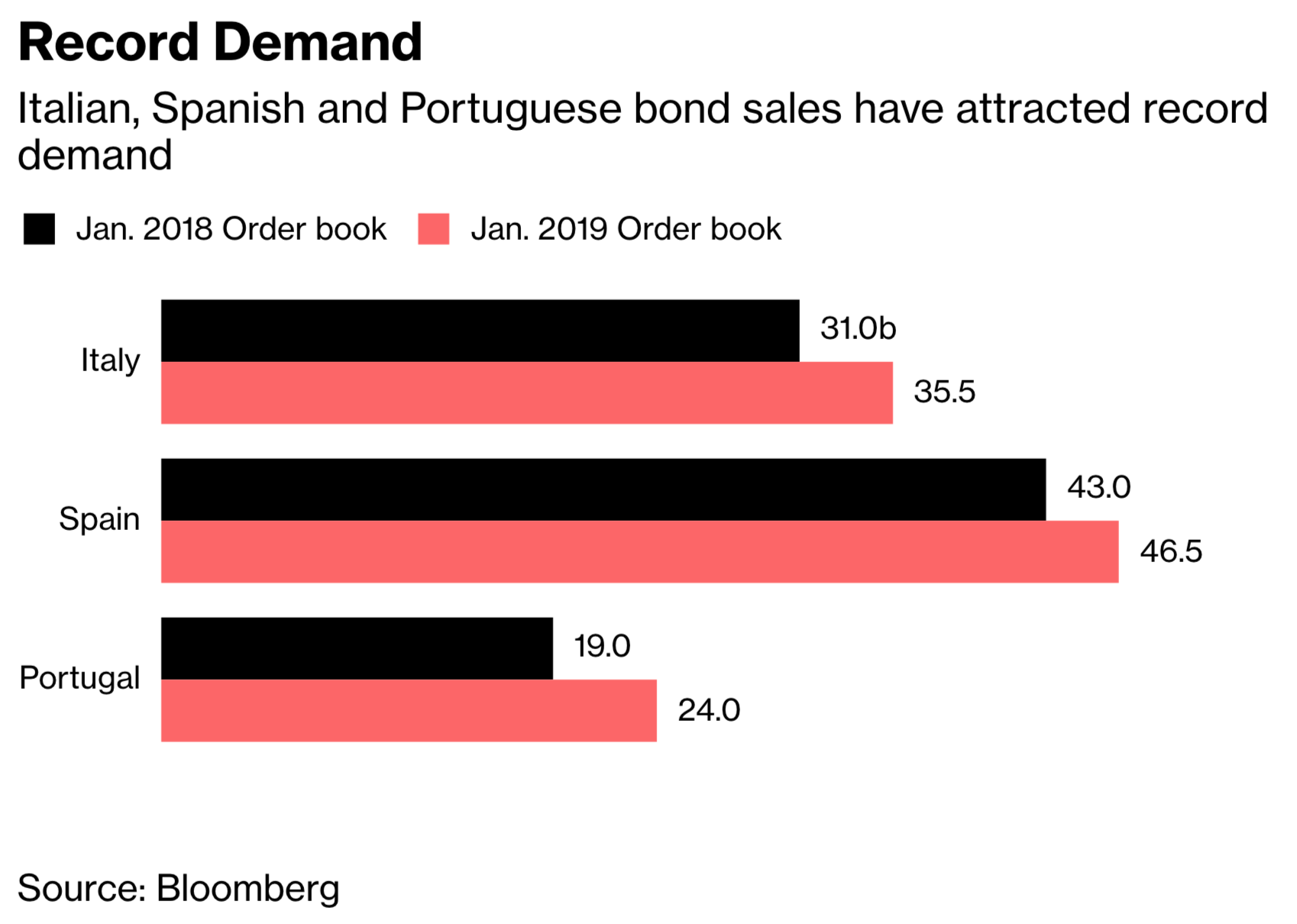Weekly Market Update
Weekly Market Update
-
Author : Laura Hochstetler
Date : January 26, 2019
Market Action
Equities worldwide this week extended their 2019 share price rebound from their December 2018 lows. The yield on the 10-year US Treasury note slipped a couple of basis points compared with a week ago, to 2.78%, while the price of a barrel of WTI crude oil held fairly steady at $53.69. Volatility, as measured by the CBOE Volatility Index (VIX), was little changed from last week at 18.
President Trump said Friday he reached a deal with congressional leaders to reopen the government for three weeks while negotiations over border security funding continue, marking at least a temporary concession by the president to Democrats. The stopgap spending bill, which would end the longest government shutdown in US history, provides no immediate funding for a border wall. Trump said he will continue to push for funding for such a barrier in the next three weeks.
The US officially recognized Venezuelan opposition leader Juan Guaido as the interim president of that country. Guaido declared himself interim president on Wednesday. Joining the US were 12 other countries in the Americas, including Canada, Brazil, Argentina, Chile and Colombia. China, Russia and Cuba remain supportive of the government of Nicolas Maduro. The 35-year old Guaido is the head of the National Assembly and says Maduro is not a legitimate ruler. Maduro, after the US’ recognition of Guaido, suspended diplomatic relations with the US and gave it 72 hours to remove its diplomats from Venezuela. Tens of thousands of protestors took to the streets of Caracas on Wednesday to call for Maduro’s ouster.
Greece ratified a US-backed deal with Macedonia that aims to help stabilize the Balkan region, but which is highly controversial in Greece and polarizing Greece’s political scene. The agreement, which renames the Balkan country as North Macedonia and lifts Greece’s veto on its neighbor joining the EU and NATO, was passed on Friday by a very narrow majority of three lawmakers in Greece’s 300-seat parliament. The deal is likely to be a factor in Greece’s coming national elections, which have to take place by October but could happen as soon as May.
China’s economy slowed to a 6.4% annual growth pace in the fourth quarter of 2018, down from 6.5% in Q3. For the full year 2018, growth downshifted to 6.6%, the slowest pace since 1990. That compares with a downwardly revised 6.8% growth rate in 2017.
Despite market concerns over slowing global growth, US labor markets continue to buck the trend. Following on the heels of a very strong December employment report released earlier this month, weekly jobless claims fell to 199,000 this week, the fewest since November 1969. That number is all the more remarkable considering the US labor force has more than doubled from roughly 80 million workers in 1969 to over 163 million today. On the manufacturing front, flash manufacturing purchasing managers’ data for January saw an uptick to 54.5 from 53.7 in December, the highest level since May.
Click here for this week’s updated market returns table.
What could affect markets in the days ahead?
The International Monetary Fund revised down its estimates for global growth on Monday, warning in particular that failure to resolve trade tensions between the US and China could further destabilize the world economy. Markets will focus on Chinese manufacturing data due on Thursday and Friday to glean how the world’s number two economy is faring.
US commerce secretary Wilbur Ross downplayed talk of an imminent breakthrough in trade talks with China, saying the two countries are “miles and miles” from an agreement. The comments come ahead of high-level talks with senior Chinese negotiators in Washington early next week.
On Jan 29, Britain’s parliament will debate Prime Minister Theresa May’s proposed next Brexit steps as well as alternative plans put forward by lawmakers, including some that seek to delay Britain’s March 29 exit from the EU. Analysts estimate that if May’s deal or an amendment delaying Brexit pass, sterling could rally another 5-10 percent.
This Week from BlackSummit
Between Fear and Hope: Let’s Choose Hope
John Charalambakis
Recommended Reads
How much does Xi matter? New voices on China’s foreign policy
Fear of March madness looms over Davos | Financial Times
Globalization in the Age of the Fourth Industrial Revolution
The Shrinking Middle Class | Fortune
Should China’s central bank buy local equities? | FT Alphaville
Video of the Week
Inside Europe: Italy and France face-off over migrants

